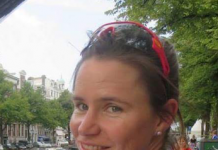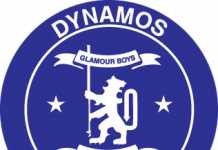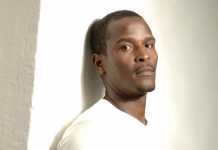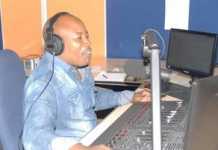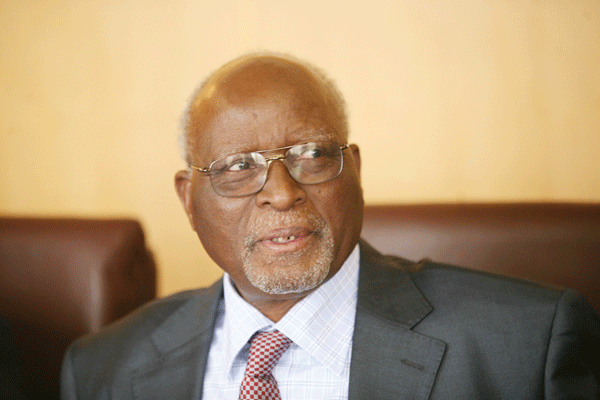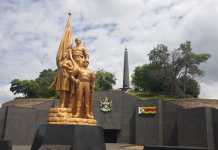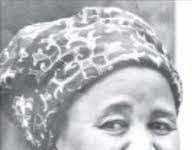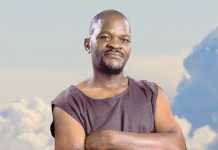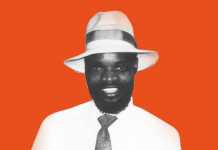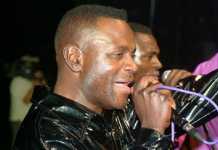Name
John Nkomo
Born
22 August 1934
Matabeleland North, Rhodesia
Died
17 January 2013 (Age 78)
Political Party
ZANU-PF
Preceded by
Joseph Msika
Succeeded by
Emmerson Mnangagwa
Facts
- Originally a member of ZAPU
John Nkomo was born on August 22, 1934 in the then Gwaai Reserve (present day Tsholotsho) in Matabeleland North Province. He was the third child in a family of nine, four girls and five boys. He did his primary education at Manqe Primary School, St Nanian’s Primary School and then went to Solusi Mission.
In 1953 he moved to Bulawayo where he did private studies for his Junior Certificate and later enrolled to train as a teacher in Lower Gweru in 1955. Nkomo was the founding member of the African National Congress between 1958 and 1959. He then joined the National Democratic Party in 1960 before joining the Zimbabwe African People’s Union in 1961. Nkomo was arrested on several occasions by the Ian Smith regime and was detained at Gonakudzingwa between 1966 and 1968.
In 1971 he joined the African National Council where he was deputy secretary-general. He was instrumental in the formation of the Patriotic Front, a union between Zapu and Zanu and attended the Geneva Conference on 1976. He was, however, seriously injured by a parcel bomb that killed Jason Ziyapapa Moyo in 1977 and continued to suffer from the effects of the incident up to the time of his death.
After the country gained independence in 1980, he joined the new Government and served as Deputy Minister of Industry and Energy in 1981 and later as Minister of State in the Prime Minister’s Office. He was appointed Minister of Labour, Manpower Planning and Social Welfare from 1988 to 1995 and then as Minister of Local Government and Rural Development in 1995 before being appointed Minister of Local Government and National Housing in 1997.
In November 2006, while serving his term as the Speaker of Parliament, John Nkomo shocked many people declaring his intention to seek the candidature for ZANU-PF for the next presidential election. Nkomo did not seek the nomination, however, as President Robert Mugabe chose to run for re-election. Nkomo did not stand as a candidate in the 2008 parliamentary election, but following the election he was appointed to the Senate by Mugabe on August 25, 2008. Later, when the national unity government was appointed in February 2009, he became Minister of State in the President’s Office.
VP Nkomo became Speaker of the Parliament in 2005 up to 2008 and was then appointed Minister of State in the President’s Office responsible for National Healing, Reconciliation and Integration in 2009 after the inception of the Inclusive Government. He was widely viewed as a moderate member within the ZANU-PF leadership. He was elected as Vice-President of ZANU-PF by a party congress on December 12, 2009, succeeding Joseph Msika, who had died a few months beforehand. He was then sworn in as Vice-President of Zimbabwe by President Mugabe on December 14. Along with Joyce Mujuru (who represents the party’s ZANU wing), Nkomo was one of two vice-presidents. In an interview at the time of his swearing-in, Nkomo expressed his commitment to the success of the national unity government and said that he would work to facilitate the achievement of its goals.
Nkomo died at St Anne’s Hospital in Harare, Zimbabwe on January 17, 2013 after he succumbed to cancer; he was declared a national hero. “The office of the late Vice President John Landa Nkomo wishes to advise the general public and Zimbabweans at large of a memorial service to commemorate the life of national hero, peacemaker, the late Vice-President John Landa Nkomo,” read part of a statement from his office.
Family spokesperson and Water Resources, Development minister Sipepa Nkomo described the late vice president as a man of peace who advocated for reconciliation among Zimbabweans.
“He didn’t care whether someone was Shona or Ndebele; he wanted to see all tribes united in Zimbabwe. As Zimbabweans, we should learn to tolerate each other despite political affiliation. The family agreed that Nkomo should be buried at the Heroes’ Acre where other colleagues who include Joshua Nkomo are buried,” said Sipepa Nkomo.


